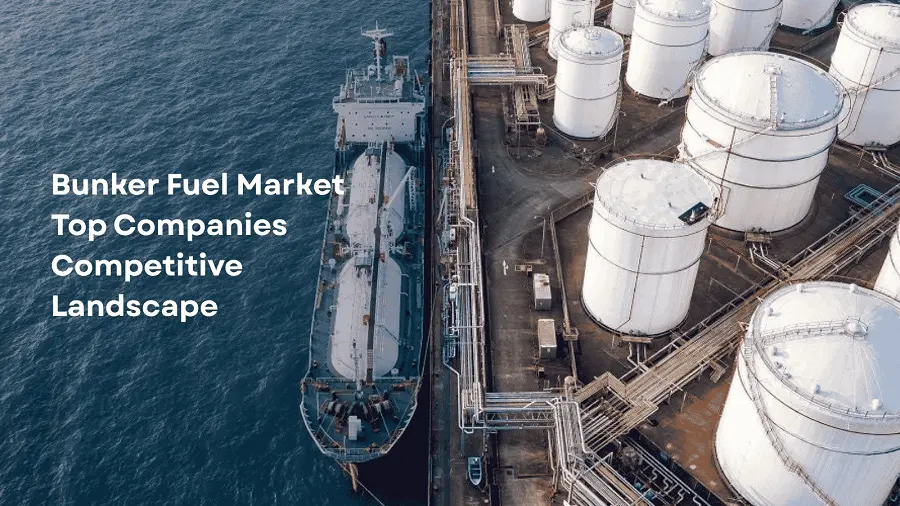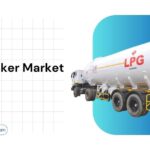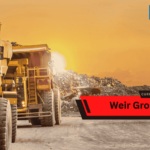Overview of the Competitive Structure (Oil Majors vs. Independent Suppliers)
The global bunker fuel market is characterized by intense competition and a somewhat fragmented structure, consisting of both large integrated oil companies and a growing number of agile independent suppliers. In 2024, major oil companies, including industry giants such as Shell, BP, ExxonMobil, TotalEnergies, Gazprom Neft, Chevron, Lukoil, and Marathon Petroleum, collectively held a dominant position in the distribution segment, capturing over 51.7% of the market share.
Their sustained strength is mainly due to their extensive global logistical networks, vast storage capacities, and well-established strategic partnerships within key port ecosystems. However, the competitive dynamics of the market are undergoing significant changes. Large independent distributors, such as World Fuel Services, Bunker Holding, KPI OceanConnect, Peninsula Petroleum, Cockett Marine Oil, Glencore, Trafigura, Vitol, Minerva Bunkering, and TFG Marine, also hold substantial market shares.
These independent players are expected to increase their influence and may even dominate the market by 2033. This shift is driven by their strategic and often more agile investments in blending facilities and storage terminals located in prominent bunkering ports. As a result, market leadership is gradually shifting from a focus on scale to one where agility, specialized infrastructure for new and complex fuel types, and strategic alliances are increasingly important. The future competitive environment is likely to be more distributed, with specialization by fuel type and regional expertise playing a crucial role.
Detailed Profiles of Leading Bunker Fuel Suppliers
Bunker Holding is the world’s largest supplier of marine fuels, with a significant global presence that spans over 1,591 ports in 28 countries through 60 offices. In 2024, the company reported stable volumes of approximately 25 million metric tons, reinforcing its position as a market leader. The company is firmly committed to the decarbonization of the shipping industry and is actively participating in the transition to low- and zero-carbon fuels. In June 2023, Bunker Holding launched its first methanol-compatible bunker tanker, the MT NORE, marking a crucial development for future methanol bunkering in key European waters.
The company is involved in over ten projects focused on making low- and zero-carbon fuels accessible to the shipping sector, with a minimum investment of $50 million and additional funding in the double-digit million range. Bunker Holding has also made a public commitment to accelerate the adoption of green hydrogen by supporting infrastructure investments and establishing safe bunkering protocols. This strategic long-term initiative, aimed at securing a leading position in the future green fuels market, has impacted short-term profitability; the company reported a modest profit of $1.7 million in 2024, a significant decrease from $222.7 million in 2023.
This indicates a deliberate decision to absorb immediate financial impacts to secure a stronger market position in the decarbonized future. The company emphasizes the importance of industry partnerships, knowledge sharing, and robust systems to foster transparency and compliance in the sector. Additionally, it has launched a new Green Centre of Excellence to advance its sustainability initiatives. One of its key goals is for 85% of its business partners to sign a Global Business Partner Responsibility Conduct (GBPRC) policy by 2027/28, promoting responsible business practices across its value chain.
World Fuel Services: World Fuel Services (WFS) is a leading global fuel logistics company involved in the marketing, sale, and distribution of aviation, marine, and land fuel products, along with related services worldwide. The company operates in over 200 countries and territories, serving more than 8,000 locations. WFS differentiates itself by providing customers with real-time global market intelligence and offering rapid access to quality marine fuel at competitive prices, available 24 hours a day, every day of the year.
Marine Segment Performance:
The marine segment of WFS has shown fluctuating performance. In Q2 2022, it recorded a significant 244% increase in gross profit, reaching $78.2 million, primarily due to market volatility and exceptionally high bunker fuel prices. However, revenue declined in 2023 to $1,428.9 million, down from $2,353 million in 2022. This decrease was primarily attributed to a 24% drop in the average bunker fuel price per metric ton and a 20% reduction in volume due to heightened competition. In Q4 2024, marine gross profit fell further by 22% to $34 million, again linked to lower prices and market fluctuations. This sensitivity to price changes and competitive pressures underscores WFS’s focus on delivering “value-added benefits” such as price risk management, logistical support, and digital tools. This strategic shift enables WFS to evolve from being just a fuel supplier to a key strategic partner, assisting clients in navigating volatile market conditions and optimizing their operations.
Sustainable Solutions:
WFS is actively expanding its portfolio of sustainable solutions, offering a variety of renewable and digital options to support decarbonization efforts. The company is committed to facilitating the energy transition by providing liquefied natural gas (LNG) as a transitional fuel, as well as biofuels, blended marine fuels, and fuel additives designed to reduce emissions. Additionally, WFS helps its customers achieve their sustainability goals by facilitating the purchase of fuel bundled with carbon offsets. Its digital marine technology solutions for fleet optimization include daily reporting, advanced analytics, and online procurement tools, all aimed at improving efficiency and reducing costs.
Shell:
Recognized as a global leader in marine fuels and lubricants, Shell operates an extensive network that spans over 700 ports across 62 countries, serving more than 10,000 vessels. The company has a long-standing reputation for innovation within the marine industry. Shell is at the forefront of decarbonization initiatives, investing significantly in research and development for alternative fuels.
The company is actively involved in developing and supplying cleaner marine fuels, including LNG and Bio-LNG. Shell aims to produce approximately 2 million tonnes of Sustainable Aviation Fuel (SAF) annually by 2025. To reduce its Scope 1 and 2 emissions, the company has strategically ceased crude-based jet fuel production at its facility in Wesseling, Germany. Additionally, Shell is exploring future scenarios for hydrogen and ammonia-fueled container ships, which may become viable in the 2030s or 2040s. In 2022, Shell completed over 250 ship-to-ship LNG bunkering operations, showcasing its operational capabilities in alternative fuels.
In 2023, Shell invested $1.287 billion in R&D, with 49% allocated to decarbonization contracts. The company has set ambitious targets to halve its Scope 1 and 2 emissions by 2030 (compared to 2016 levels) and achieve net-zero emissions by 2050. This aggressive decarbonization strategy demonstrates a proactive shift by a major oil company towards a net-zero future, leveraging its R&D capabilities and global network to lead in new, sustainable fuel segments.
Shell also integrates digitalization into its marine offerings. Shell LubeMonitor, a digital tool, helps optimize feed rates and monitor cylinder conditions for marine lubricants. The company is developing AI-powered predictive maintenance tools and leveraging digitalization to enhance efficiency, safety, and the delivery of low-carbon energy solutions, including using AI to reduce ships’ fuel consumption.
BP:
BP is deeply committed to decarbonizing the shipping industry through a comprehensive strategy that encompasses fuel alternatives and advanced vessel monitoring technologies. The company has set ambitious targets for net-zero operations and sales, aiming for a 20% reduction in Scope 1 and 2 emissions by the end of 2025 (compared to a 2019 baseline). BP is actively developing and testing biofuels produced from sustainable sources, such as used cooking oil and brown grease, which can serve as “drop-in” fuels for conventional marine engines and help reduce lifecycle CO2 emissions.
The company is also exploring hydrogen, methanol, and ammonia as crucial lower-carbon marine fuels, with pilot projects for ammonia as a marine fuel planned for major ports by 2025. This holistic approach, which combines alternative fuel development with vessel efficiency technologies, reflects BP’s understanding that fuel alone is not the sole solution for decarbonization. Additionally, BP is engaged in significant strategic partnerships and investments to drive decarbonization.
The company has committed $7.4 million to the Global Centre for Maritime Decarbonization to support research, pilots, and trials. BP collaborates with key industry players such as NYK Line, the Mærsk Mc-Kinney Møller Center for Zero Carbon Shipping, the Global Maritime Forum, and the Blue Sky Maritime Coalition. Furthermore, BP is investing in green hydrogen projects in Spain and Germany and has made a final investment decision for the Tangguh UCC project in Indonesia, which includes carbon capture, utilization, and storage (CCUS). In 2024, BP reported a profit attributable to shareholders of $0.4 billion, with an underlying replacement cost profit of $8.9 billion.
ExxonMobil:
ExxonMobil is making significant investments to advance lower-emission fuels and carbon capture and storage (CCS) technologies, supporting the marine industry’s transition toward a net-zero future. The company plans to invest over $15 billion by 2027 in initiatives aimed at reducing greenhouse gas (GHG) emissions, with a substantial portion allocated to biofuels, CCS, and hydrogen. Its objective is to supply more than 40,000 barrels per day (b/d) of lower-emission fuels by 2025, with an ambitious target of over 200,000 b/d by 2030. ExxonMobil is actively exploring a variety of lower-emission fuel options.
These include “drop-in” biofuels like BMF.5™, which can reduce Well-to-Wake GHG emissions by up to 34%. The company has extensive experience with hydrogen, producing approximately 1.3 million metric tons annually, and is investigating its use as a zero-carbon energy carrier for hard-to-decarbonize sectors like marine transportation. Methanol (produced from hydrogen and captured CO2) and ammonia (through green hydrogen/ammonia studies at its Slagen terminal in Norway) are also being studied as potential marine fuels. This aggressive investment in CCS and low-carbon hydrogen/ammonia indicates a long-term strategy focused on large-scale, capital-intensive solutions for decarbonization, leveraging ExxonMobil’s existing expertise in industrial operations.
TotalEnergies:
TotalEnergies is the second-largest private global LNG player, holding approximately 10% of the worldwide market share. The company is making significant investments to expand its international presence in LNG bunkering infrastructure. Its first LNG bunker vessel, the Gas Agility, has been operational in Rotterdam since November 2020, and a second, the Gas Vitality, was launched in Marseille in January 2022. A third vessel, the Brassavola, is set for commercial LNG bunkering operations at the Port of Singapore. TotalEnergies has also proactively chartered four new LNG-powered Aframax vessels (delivered in 2023) and two VLCCs (delivered in 2022), signaling a strategy of vertically integrating cleaner fuel supply with demand.
This approach allows the company not only to supply LNG but also to operate LNG-powered vessels, gaining valuable operational experience and accelerating market adoption. In addition to LNG, TotalEnergies advocates for biofuels, promoting them as a sustainable alternative and supplement to conventional fossil fuels. Its biofuel offerings can achieve up to 90% CO2 abatement and can be used as “drop-in” fuels or blended without requiring vessel modifications. The company supplied its first biofuel bunker in Singapore in August 2024, with its biofuel products certified under the International Sustainability and Carbon Certification (ISCC) system.
TotalEnergies is also collaborating on studies for methanol bunkering supply chains in Singapore. For the fiscal year 2024, the company reported a first interim dividend of €0.79 per share, a 7% increase from 2023, and was recognized as the most profitable major company for the third consecutive year, achieving a 14.8% Return on Average Capital Employed (ROACE). It invested approximately $5 billion in low-carbon energies in 2024.
Vitol:
As a leading global energy and commodities company, Vitol holds a significant position in the bunker fuel market, with an estimated 6% global market share, equating to roughly 13 million tonnes of fuel. In 2024, the company delivered 7.2 million barrels per day (mbpd) of crude oil and products, with LNG volumes growing by 10% to 19.4 million tonnes of oil equivalent (mTOE). Vitol has actively expanded its bunkering operations, including a recent deal in the Maldives and the launch of barge-based bunker supply (VLSFO and MGO) in West Africa. A key strategic move is the integration of refining assets with trading and bunkering operations.
Vitol introduced a new FuelEU-compliant co-processed VLSFO offering, produced at its Fujairah refinery, which will be marketed in various locations. This fuel complies with the relevant VLSFO grade and utilizes sustainable feedstocks, demonstrating a reduction of over 70% in greenhouse gas intensity (GHGi) compared to fossil-based alternatives. Vitol is also exploring opportunities to blend waste biofuels, including bio-LNG and biodiesel, into the bunker market, recognizing biofuels as an essential component of the marine bunker market, particularly driven by demand from container and car carrier industries.
TFG Marine:
Established in 2020 as a joint venture between Trafigura, Frontline, and Golden Ocean, TFG Marine has quickly emerged as a leading marine fuel supply and procurement entity. The company supplies over 10 million metric tonnes of marine fuels annually across 35 strategic bunkering hub locations globally, operating in over 80% of the world’s sea routes. TFG Marine is making significant investments in advanced vessel capabilities to support the industry’s energy transition. It launched the Pearl Lavender, the first of four newbuild IMO Type II chemical bunkering tankers, capable of enhancing the efficiency and sustainability of marine fuel supply.
Minerva Bunkering:
Minerva Bunkering is a leading independent bunker supplier with an integrated supply chain and extensive physical assets, covering over 150 ports worldwide. The company has an annual physical delivery capacity of 25 million metric tonnes and sources over 35 million tonnes of fuel each year through its supply chain. Its asset base includes 44 vessels (35 of which are owned) and more than 1.9 million cubic meters of storage capacity. A significant strategic move for Minerva was the acquisition of Aegean Marine Petroleum Network Inc. in 2019, which strengthened its asset portfolio.
Minerva Bunkering offers carbon-neutral marine fuel solutions by retiring verified carbon offset certificates, utilizing the expertise of its parent company, Mercuria, in emissions trading. The company helps customers navigate environmental regulations and transition to lower carbon intensity by providing services such as MARPOL Annex I compliant slops collection and long-term LNG bunker supply agreements. Minerva is also investing in advanced metering, blockchain applications, and smart contracts to enhance transparency and security in marine fuel transactions.
This strategy combines a vast physical asset base with the financial strength and emissions trading expertise of Mercuria Energy Group—the world’s third-largest commodity trading firm—allowing Minerva to provide comprehensive, low-risk, and increasingly “carbon-neutral” solutions to its customers. The company’s financial backing grants it access to over $25 billion in diversified financing capacity. In December 2021, Minerva expanded its physical supply network by starting marine fuel supply in Yanbu and Jeddah, Saudi Arabia, strategically deploying a Floating Storage Unit (FSU) in the Red Sea to improve supply chain efficiency.
Glencore:
As one of the world’s leading marketers of crude oil and oil products, Glencore has a significant global presence in marine fuels. Its operations span key regions, including North and Central America (e.g., Saint Lucia, Los Angeles & Long Beach, Panama, Houston, Gulf of Mexico, New York) and Asia-Pacific (e.g., Singapore, Australia). The company offers a comprehensive range of services and associated tariffs across these bunkering hubs. Glencore has made a clear commitment to sustainability and Environmental, Social, and Governance (ESG) principles, integrating these aspects into its core business operations.
The company publishes a Climate Report and a Climate Action Transition Plan for 2024-2026 and is dedicated to maintaining a strong culture of ethics and compliance. Glencore has set ambitious targets to reduce its Scope 1, 2, and 3 industrial emissions by 15% by 2026, 25% by 2030, and 50% by 2035, based on a 2019 baseline, with the overarching goal of achieving net-zero industrial emissions by 2050. This comprehensive sustainability framework is essential for maintaining its social license to operate and attracting investment in a global economy increasingly focused on responsible sourcing and climate action. Recent news highlights Glencore’s expansion into US natural gas trading, as well as its involvement in significant legal proceedings related to commodity trading.









